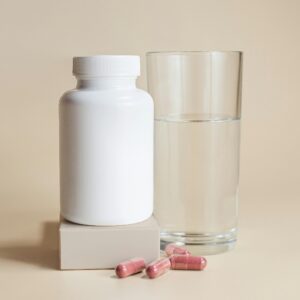Harnessing the Power of Peptides: Unveiling the Potential of BPC157, GHRP2, and TB500

Table of Contents
Harnessing the Power of Peptides: Unveiling the Potential of BPC157, GHRP2, and TB500
In recent years, the field of regenerative medicine has witnessed remarkable advancements, with peptides emerging as promising therapeutic agents. Peptides are short chains of amino acids that play crucial roles in numerous biological processes within the body. This blog post aims to shed light on the potential of three remarkable peptides: BPC157, GHRP2, and TB500. Let’s dive into the world of peptides and explore how these compounds could revolutionize the realm of healing and recovery.
Peptides: A Brief Overview
Peptides are natural compounds that are found throughout our bodies, functioning as key signaling molecules. Comprised of short chains of amino acids, peptides act as messengers, conveying specific instructions to cells, tissues, and organs. Due to their small size, peptides can easily penetrate cell membranes, enabling them to interact with target cells and trigger specific biological responses.
BPC157: The Wound Healing Marvel
One of the most intriguing peptides in the medical world is BPC157, also known as Body Protective Compound 157. BPC157 has gained significant attention for its remarkable regenerative properties, especially in relation to wound healing and tissue repair. Studies have shown that BPC157 promotes angiogenesis (formation of new blood vessels), enhances collagen synthesis, and exhibits anti-inflammatory effects.
BPC157 has been investigated for its potential in treating a wide range of conditions, including musculoskeletal injuries, inflammatory bowel disease, and even neurodegenerative disorders. By accelerating the healing process and reducing inflammation, BPC157 offers promising prospects for athletes, individuals recovering from surgery, and those seeking enhanced recovery from injuries.
GHRP2: Unlocking Growth Hormone Potential
Growth Hormone Releasing Peptide 2 (GHRP2) is a synthetic peptide that stimulates the release of growth hormone from the pituitary gland. Growth hormone plays a vital role in various physiological processes, including tissue repair, muscle growth, and metabolism regulation.
GHRP2 has shown potential benefits in stimulating muscle growth, improving muscle tone, and enhancing overall body composition. Additionally, GHRP2 may assist in the recovery from injuries, as it promotes collagen synthesis and accelerates wound healing. Athletes and bodybuilders often turn to GHRP2 to aid in muscle recovery and to amplify their training results.
TB500: The Healing Catalyst
Thymosin Beta-4 (TB500) is a naturally occurring peptide that demonstrates potent healing properties. TB500 plays a crucial role in regulating cellular functions, particularly in wound healing, tissue repair, and angiogenesis. Research suggests that TB500 promotes the migration of cells to damaged tissues, enhances blood vessel formation, and stimulates tissue regeneration.
TB500 has shown promise in the treatment of a wide range of injuries, including tendon and ligament damage, muscle strains, and even cardiac injuries. Additionally, TB500’s anti-inflammatory properties have made it a potential therapeutic option for chronic conditions such as arthritis. Athletes, particularly those prone to sports-related injuries, have taken an interest in TB500 as a means to accelerate healing and recovery.
Conclusion
Peptides offer an exciting frontier in the realm of regenerative medicine. The potential applications of peptides like BPC157, GHRP2, and TB500 are vast and hold significant promise for enhancing healing, recovery, and overall well-being.
It is important to note that while these peptides show great potential, more research is needed to fully understand their mechanisms of action and long-term effects. As with any therapeutic intervention, it is essential to consult with healthcare professionals before incorporating these peptides into any treatment plan.
Share This Post
More To Explore
Commonly Asked Questions
Subscribe to our emailing list to receive our latest news, articles and promotions. You may unsubscribe at any time.

Privacy Policy Shipping Refund & Returns Terms & Conditions
Copyright © 2023 VI Corpus. All rights reserved


